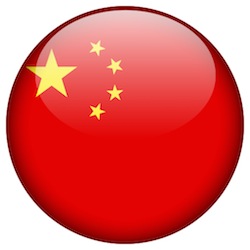Investment Strategies
Carmignac Takes Risk Off The Table As China's Woes Continue

The European investment house is reducing exposures in areas such as equities.
Carmignac, the investment house, has shrunk its equity exposure, increased allocation to the euro and reduced its dollar holdings, as well as taking negative bets on Asian currencies in the wake of the recent depreciation of the Chinese renminbi.
One feature of the Chinese equity market tumble and the fall in some other markets is that it did not lead to a “safe haven” inflow to government bonds, as traditionally has been the case. Weakness in bond markets means the firm is continuing to sell on any gains in bond assets, Didier Saint-Georges, member of the investment committee and managing director, said in a note.
“The main highlight of the summer was the devaluation of China’s official exchange rate by nearly 3 per cent, which sent a shock wave through all financial markets. The renminbi then stabilised, but this required massive intervention from the People’s Bank of China. The euro ended this highly volatile month for currencies up slightly against the US dollar as investors unwound speculative positions funded with the single currency,” he said.
The firm is by no means the only such organisation to trim equity exposure and take a more risk averse stance. Concerns about Greece and China's situation sent cash holdings of the world’s main investment houses rising to an average of 5.5 per cent as early as July, the highest level since the September 2008 collapse of Lehman Brothers, according to the survey that month by Bank of America Merrill Lynch.
“Our currency strategy focused on limiting the impact of this trend by increasing our allocation to the euro and reducing the dollar. We also introduced short positions on Asian currencies such as the Korean won, which came under pressure again as a result of the renminbi’s depreciation,” Saint-Georges said.
He noted that stress on financial markets did not cause a “flight to safe haven assets such as government bonds”.
“Unfortunately, the magnitude of the correction and the lack of safe havens wiped out previous gains. Yields in developed countries were generally stable over the month. However it is worth noting the continued sharp decline of 10-year rates in Greece, which fell back under the 10 per cent mark. We did not make any significant changes to our bond strategy: we therefore continue to take regular profits on European peripheral sovereign debt while maintaining our positions on corporate bonds in the financial sector,” he continued.
Commenting on equity markets, Saint-Georges said the firm “sharply reduced our equity exposure”.
“Although fresh support from central banks could temporarily shore up the markets, our doubts over the future development of economic fundamentals explain our caution. Our hedging of the main global indices does not affect the underlying structure of our portfolios, which continue to focus on quality stocks able to deliver earnings growth independently from the global economy: we will therefore continue to take advantage of their outperformance to drive the returns of our equity strategies,” he said.
He said the firm’s commodities arm has suffered negative monthly returns but it beat broader measures of the market.